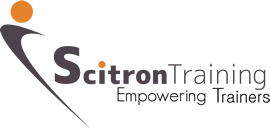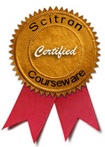A two day training workshop
Emotional intelligence or Quotient (EQ) is the capacity for effectively recognizing and managing our own
emotions and those of others. Emotions have the potential to get in the way of our most important business
relationships. A lack of EQ is the main reason promising careers derail. A critical level of EQ is the number one
reason successful leaders, managers and sales people outperform the average!
According to John Kotter of Harvard Business School, 'because of the furious pace of change in business
today, difficult to manage relationships sabotage more business than anything else - it is not a question of
strategy that gets us into trouble, it is a questions of emotions'.
The Importance of Emotional Intelligence (EI)
Research tracking over 160 high performing individuals in a variety of industries and job levels revealed that
emotional quotient was two times as important in contributing to excellence than intellect and expertise
alone.
Top Ten Skills for Developing and Increasing EI
|
1. Become emotionally literate: Label your feelings, rather than labeling people or situations |
"I feel impatient." vs "This is ridiculous." I feel hurt and bitter". vs. "You are an insensitive jerk." "I feel afraid." vs. "You are driving like an idiot." |
|
2. Distinguish between thoughts and feelings |
Thoughts: I feel like...& I feel as if.... & I feel that Feelings: I feel: (feeling word) |
|
3. Take more responsibility for your feelings. |
"I feel jealous." vs. "You are making me jealous." |
|
4. Use your feelings to help them make decisions |
"How will I feel if I do this?" "How will I feel if I don't" |
|
5. Show respect for other people's feelings |
Ask "How will you feel if I do this?" "How will you feel if I don't." |
|
6. Feel energized, not angry. |
Use what others call "anger" to help feel energized to take productive action. |
|
7. Validate other people's feelings. |
Show empathy, understanding and acceptance of other people's feelings. |
|
8. Practice getting a positive value from emotions. |
Ask yourself: "How do I feel?" and "What would help me feel better?" Ask others "How do you feel?" and "What would help you feel better?" |
|
9. Don't advise, command, control, criticize, judge or lecture to others. |
Instead, try to just listen with empathy and non-judgment. |
|
10. Avoid people who invalidate you. |
While this is not always possible, at least try to spend less time with them, or try not to let them have psychological power over you. |
Participants will Learn How To:
- Use three word sentences beginning with "I feel"
- Start labeling feelings; stop labeling people & situations
- Analyze your own feelings rather than the action or motives of other people
- Ask others how they feel -- on scale of 0-10
- Make time to reflect on your feelings
- Identify your fears and desires
- Identify your UEN's (Unmet Emotional Needs)
- Take responsibility for your emotions & happiness; Stop believing others cause your feelings; Don't
- expect others to "make" you happy
- Express your feelings - find out who cares - spend time with them
- Develop the courage to follow your own feelings
Understanding and Developing Personal Competence
EMOTIONAL AWARENESS:
Recognizing one’s emotions and their effects. People with this competence:
- Know which emotions they are feeling and why
- Realize the links between their feelings and what they think, do, and say
- Recognize how their feelings affect their performance
- Have a guiding awareness of their values and goals
ACCURATE SELF-ASSESSMENT:
Knowing one’s strengths and limits. People with this competence are:
- Aware of their strengths and weaknesses
- Reflective, learning from experience
- Open to candid feedback, new perspectives, continuous learning, and self-development
Able to show a sense of humor and perspective about themselves
SELF-CONFIDENCE:
Sureness about one’s self-worth and capabilities. People with this competence:
- Present themselves with self-assurance; have "presence"
- Can voice views that are unpopular and go out on a limb for what is right
- Are decisive, able to make sound decisions despite uncertainties and pressures
- Self-Regulation
SELF-CONTROL:
Managing disruptive emotions and impulses. People with this competence:
- Manage their impulsive feelings and distressing emotions well
- Stay composed, positive, and unflappable even in trying moments
- Think clearly and stay focused under pressure
TRUSTWORTHINESS:
Maintaining standards of honesty and integrity. People with this competence:
- Act ethically and are above reproach
- Build trust through their reliability and authenticity
- Admit their own mistakes and confront unethical actions in others
- Take tough, principled stands even if they are unpopular
CONSCIENTIOUSNESS:
Taking responsibility for personal performance. People with this competence:
- Meet commitments and keep promises
- Hold themselves accountable for meeting their objectives
- Are organized and careful in their work
ADAPTABILITY:
Flexibility in handling change. People with this competence:
- Smoothly handle multiple demands, shifting priorities, and rapid change
- Adapt their responses and tactics to fit fluid circumstances
- Are flexible in how they see events
INNOVATIVENESS:
Being comfortable with and open to novel ideas and new information. People with thiscompetence:
- Seek out fresh ideas from a wide variety of sources
- Entertain original solutions to problems
- Generate new ideas
- Take fresh perspectives and risks in their thinking
- Self-Motivation
ACHIEVEMENT DRIVE:
Striving to improve or meet a standard of excellence. People with this competence:
- Are results-oriented, with a high drive to meet their objectives and standards
- Set challenging goals and take calculated risks
- Pursue information to reduce uncertainty and find ways to do better
- Learn how to improve their performance
COMMITMENT:
Aligning with the goals of the group or organization. People with this competence:
- Readily make personal or group sacrifices to meet a larger organizational goal
- Find a sense of purpose in the larger mission
- Use the group’s core values in making decisions and clarifying choices
- Actively seek out opportunities to fulfill the group’s mission
INITIATIVE:
Readiness to act on opportunities. People with this competence:
- Are ready to seize opportunities
- Pursue goals beyond what’s required or expected of them
- Cut through red tape and bend the rules when necessary to get the job done
- Mobilize others through unusual, enterprising efforts
OPTIMISM:
Persistence in pursuing goals despite obstacles and setbacks. People with this competence:
- Persist in seeking goals despite obstacles and setbacks
- Operate from hope of success rather than fear of failure
- See setbacks as due to manageable circumstance rather than a personal flaw
Understanding and Developing Social Competence
SOCIAL COMPETENCE
- Social Awareness
- EMPATHY: Sensing others’ feelings and perspective, and taking an active interest in their concerns.
People with this competence:
- Are attentive to emotional cues and listen well
- Show sensitivity and understand others’ perspectives
- Help out based on understanding other people’s needs and feelings
SERVICE ORIENTATION:
Anticipating, recognizing, and meeting customers’ needs. People with this competence:
- Understand customers’ needs and match them to services or products
- Seek ways to increase customers’ satisfaction and loyalty
- Gladly offer appropriate assistance
- Grasp a customer’s perspective, acting as a trusted advisor
DEVELOPING OTHERS:
Sensing what others need in order to develop, and bolstering their abilities. People with this
competence:
- Acknowledge and reward people’s strengths, accomplishments, and development
- Offer useful feedback and identify people’s needs for development
- Mentor, give timely coaching, and offer assignments that challenge and grow a person’s skill
LEVERAGING DIVERSITY:
Cultivating opportunities through diverse people. People with this competence:
- Respect and relate well to people from varied backgrounds
- Understand diverse worldviews and are sensitive to group differences
- See diversity as opportunity, creating an environment where diverse people can thrive
- Challenge bias and intolerance
POLITICAL AWARENESS:
Reading a group’s emotional currents and power relationships. People with this competence:
- Accurately read key power relationships
- Detect crucial social networks
- Understand the forces that shape views and actions of clients, customers, or competitors
- Accurately read situations and organizational and external realities
- Social Skills
INFLUENCE:
Wielding effective tactics for persuasion. People with this competence:
- Are skilled at persuasion
- Fine-tune presentations to appeal to the listener
- Use complex strategies like indirect influence to build consensus and support
- Orchestrate dramatic events to effectively make a point
COMMUNICATION:
Sending clear and convincing messages. People with this competence:
- Are effective in give-and-take, registering emotional cues in attuning their message
- Deal with difficult issues straightforwardly
- Listen well, seek mutual understanding, and welcome sharing of information fully
- Foster open communication and stay receptive to bad news as well as good
LEADERSHIP:
Inspiring and guiding groups and people. People with this competence:
- Articulate and arouse enthusiasm for a shared vision and mission
- Step forward to lead as needed, regardless of position
- Guide the performance of others while holding them accountable
- Lead by example
CHANGE CATALYST:
Model the change expected of others Initiating or managing change. People with this competence:
- Recognize the need for change and remove barriers
- Challenge the status quo to acknowledge the need for change
- Champion the change and enlist others in its pursuit
CONFLICT MANAGEMENT:
Negotiating and resolving disagreements. People with this competence:
- Handle difficult people and tense situations with diplomacy and tact
- Spot potential conflict, bring disagreements into the open, and help deescalate
- Encourage debate and open discussion
- Orchestrate win-win solutions
BUILDING BONDS:
Nurturing instrumental relationships. People with this competence:
- Cultivate and maintain extensive informal networks
- Seek out relationships that are mutually beneficial
- Build rapport and keep others in the loop
- Make and maintain personal friendships among work associates
COLLABORATION AND COOPERATION:
Working with others toward shared goals. People with this competence:
- Balance a focus on task with attention to relationships
- Collaborate, sharing plans, information, and resources
- Promote a friendly, cooperative climate
- Spot and nurture opportunities for collaboration
TEAM CAPABILITIES:
- Model team qualities like respect, helpfulness, and cooperation
- Draw all members into active and enthusiastic participation
- Build team identity, esprit de corps, and commitment
Protect the group and its reputation; share credit


















